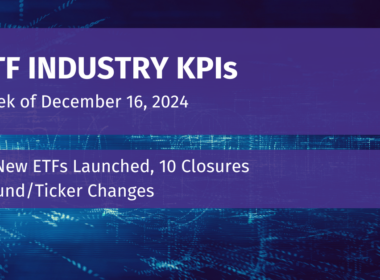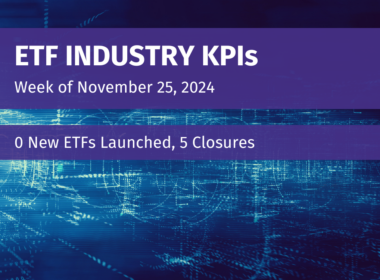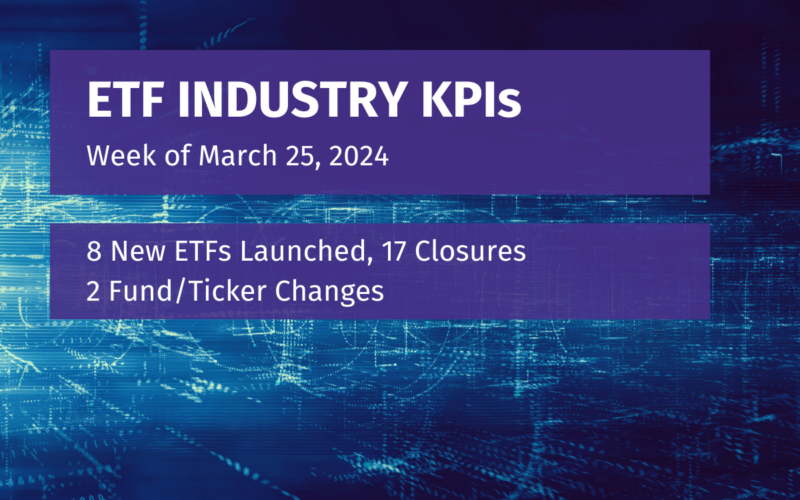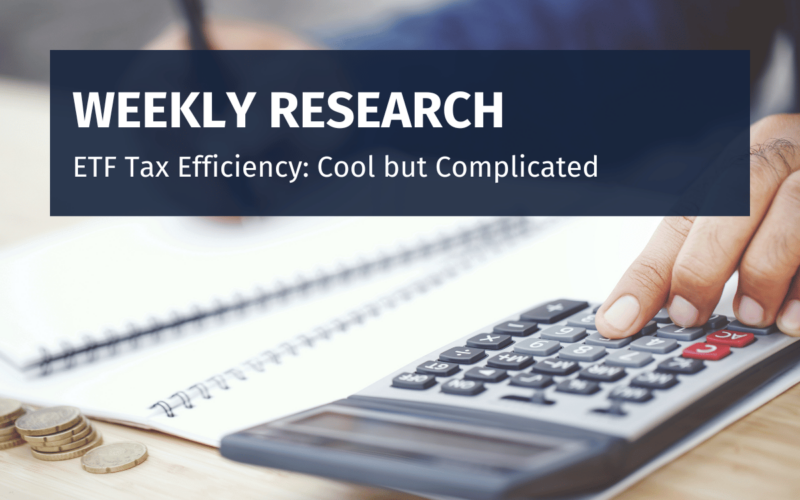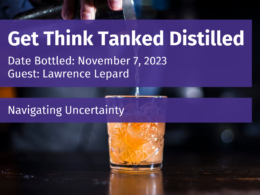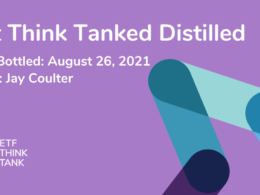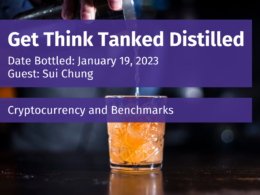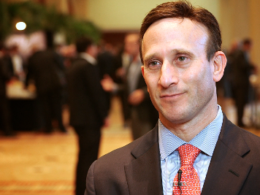Porter Stansberry serves as Chairman of Porter & Co., a boutique investment research firm that offers in-depth market analysis and insights. His company’s purview includes everything from energy stocks to high yield bonds to biotech to what he calls “battleship” stocks. He joins the ETF Think Tank to offer his thoughts on the current market environment and what the next few years could look like.
Stansberry has spent considerable time in recent years identifying dislocations in the market whether that’s due to fraud or some other reason. The biggest red flag he sees in the market today is Boeing. He says that the kind of financial engineering that’s happening right now is the same kind of accounting gymnastics that occurred at GE which he believes could lead to cataclysmic consequences for shareholders. With businesses, he says, culture is destiny. You can’t succeed unless the entire leadership team is committed to integrity within its operations and Boeing has none of this right now. Some people say that Boeing can’t go bankrupt, but fundamentally broken companies can certainly go under. Stansberry likes short situations where there is no reasonable way out.
Stansberry, not surprisingly, sees artificial intelligence as revolutionary, but he doesn’t think the current leaders will be the leaders when the revolution is finished. There are all sorts of businesses whose margins are about to improve thanks to AI and, if he were an investor, he would find companies whose basic goods and services can be transformed by AI. Blockchain can similarly transform industries, such as healthcare and financial services, but he doesn’t think it will happen as quickly as many hope. It’s going to be a long slog because the financials are very regulated and going to fight anything that could cost them margins or market share.
While the AI revolution is currently benefiting the large companies, Stansberry thinks that eventually the small companies will be the innovators. During the advent of the internet, none of the innovations came from the big news organizations. It’s always the outsiders. The large and entrenched companies often aren’t able to put it to work quickly, but the small upstarts can because the tech is changing so quickly. In the end, AI can transform the way business is conducted, especially for those heavily involved in data analysis.
Stansberry has been on record believing that the thesis of a credit event was accurate. In particular, he believed that Bank of America was insolvent, but they played with the accounting and got a liquidity injection from the Fed so there wasn’t a run on the bank. The amount of liquidity and stimulus cash that the Fed has been putting into the economy is enormous. In the near-term, he doesn’t believe we’ll have a recession, but we could have 4%+ inflation for a long time. In the end, he expects Treasury yields to increase and that’s why small-caps are underperforming here. He does think we could be entering a melt-up scenario.
Stansberry also notes that when yields get higher, P/E multiples need to get compressed. If the high growth companies can justify a high P/E, multiples can remain higher, but most aren’t going to be able to. The staples, for example, that can’t post eye popping growth are going to see their multiples contract. Over the next few years, he feels we’ll see most stocks trading at 12-14 multiples, not 24.
Other key takeaways:
- Stansberry isn’t sure that we’ll have as much inflation now as we did in the 1970s because there’s so much more productivity today.
- It’s great that we have a challenging market. It creates a lot of opportunities and there’s nothing wrong with that.
- Stansberry thinks that the Fed did see the trouble in the financial system a year ago. There’s a reason why Bank of America got so much liquidity.
- One of the biggest beneficiaries of the AI revolution will be biotech.
- These markets where the quality of the company matters are a great thing. He thinks we’re going to see a lot more discrepancy in quality because it’s going to matter a lot more in a high interest rate environment. In Stansberry’s estimation, quality is the growth of free cash flow. There are a lot of high quality, super cheap small-cap stocks, but you have to buy them and you have to wait for it to happen. It won’t happen fast.
- In particular, he’s bullish on energy and very bullish on natural gas, citing it as the only viable bridge between coal and renewable energy. He believes there’s a world class opportunity in energy as long as you’re an investor.
Disclosure
All investments involve risk, including possible loss of principal.
The material provided here is for informational purposes only and should not be considered an individualized recommendation or personalized investment advice. The investment strategies mentioned here may not be suitable for everyone. Each investor needs to review an investment strategy for his or her own particular situation before making any investment decision.
All expressions of opinion are subject to change without notice in reaction to shifting market conditions. Data contained herein from third-party providers is obtained from what are considered reliable sources. However, its accuracy, completeness, or reliability cannot be guaranteed.
Examples provided are for illustrative purposes only and not intended to be reflective of results you can expect to achieve.
The value of investments and the income from them can go down as well as up and investors may not get back the amounts originally invested, and can be affected by changes in interest rates, exchange rates, general market conditions, political, social, and economic developments, and other variable factors. Investment involves risks including but not limited to, possible delays in payments and loss of income or capital. Neither Tidal nor any of its affiliates guarantees any rate of return or the return of capital invested. This commentary material is available for informational purposes only and nothing herein constitutes an offer to sell or a solicitation of an offer to buy any security and nothing herein should be construed as such. All investment strategies and investments involve risk of loss, including the possible loss of all amounts invested, and nothing herein should be construed as a guarantee of any specific outcome or profit. While we have gathered the information presented herein from sources that we believe to be reliable, we cannot guarantee the accuracy or completeness of the information presented and the information presented should not be relied upon as such. Any opinions expressed herein are our opinions and are current only as of the date of distribution, and are subject to change without notice. We disclaim any obligation to provide revised opinions in the event of changed circumstances.
The information in this material is confidential and proprietary and may not be used other than by the intended user. Neither Tidal nor its affiliates or any of their officers or employees of Tidal accepts any liability whatsoever for any loss arising from any use of this material or its contents. This material may not be reproduced, distributed, or published without prior written permission from Tidal. Distribution of this material may be restricted in certain jurisdictions. Any persons coming into possession of this material should seek advice for details of and observe such restrictions (if any).


